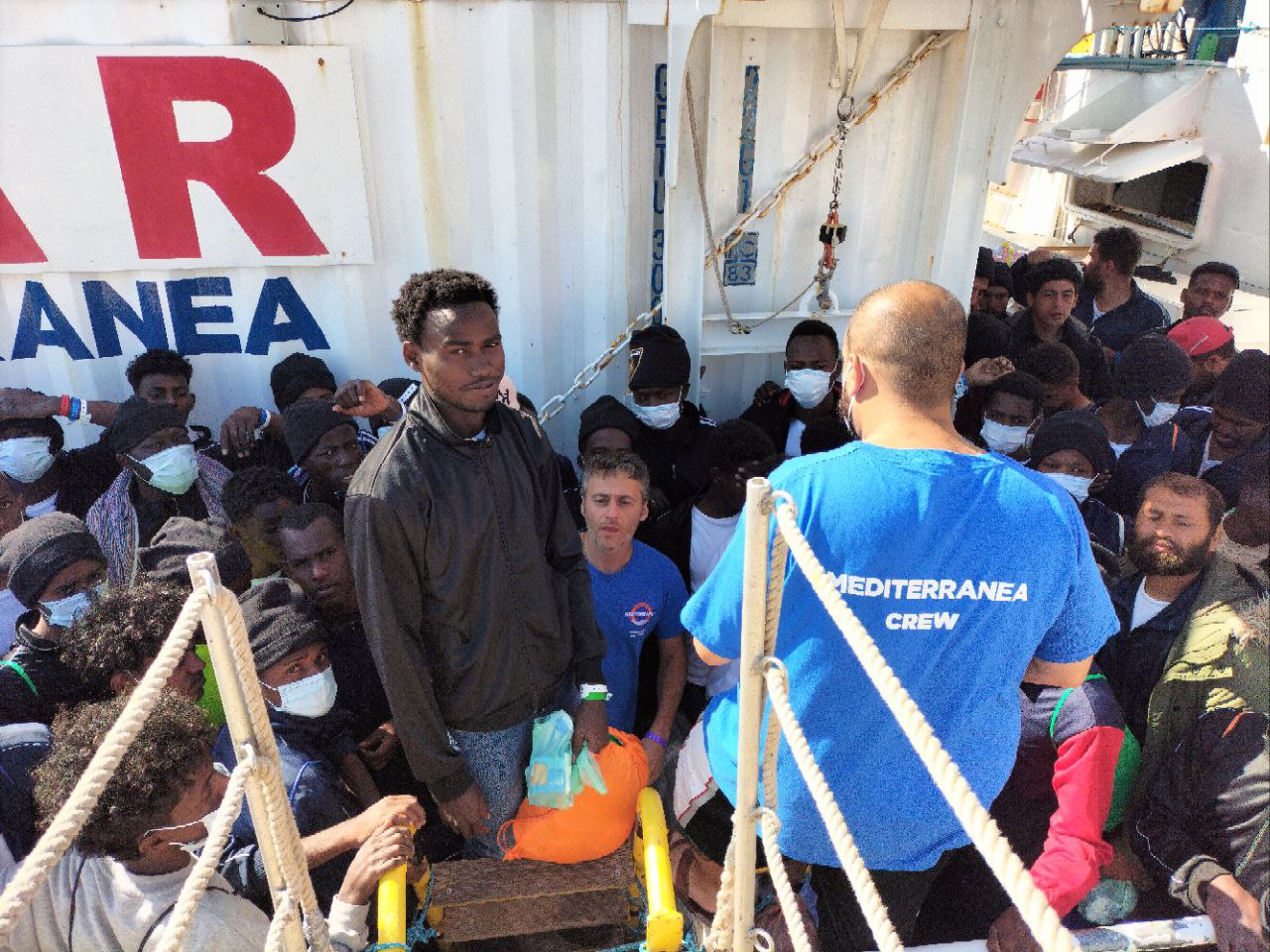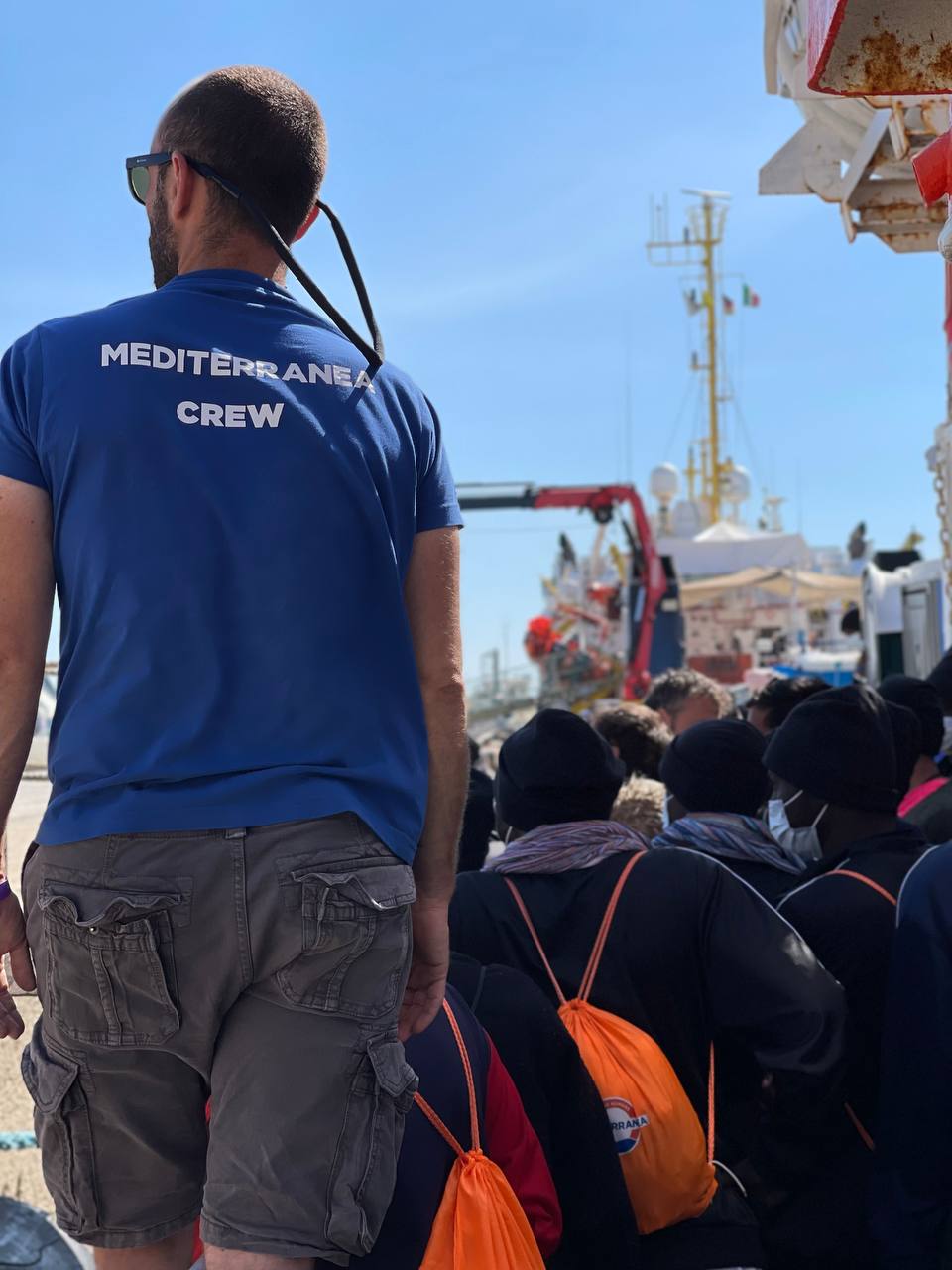A few hours after entering the Libyan SAR zone (south of the 34°20 parallel) on Saturday 4 June afternoon, the Mare Jonio intervened in support of the ship Sea Watch 3 of the German organisation of the same name, which had heard over the radio a report from a Libyan fishing boat of a first boat in difficulty. As the two civilian vessels were heading for the indicated position, we could distinctly observe on radar the intense activity of the Maltese military drone AS2132 in the area and, subsequently, listen to the radio chatter of a Maltese Armed Forces AW139/SAR2187 helicopter that was flying over the boat in distress, providing its position to a Libyan patrol boat that was on its way to the scene. The pilots of the Maltese helicopter were made aware by radio that they were collaborating in a clear violation of international law.
Indeed, collaborating with the capture at sea and deportation to Libya of people who are fleeing from a country where they are exposed to unspeakable violence and abuse is a violation of both the 1979 Hamburg Convention on Sea Rescue and the 1951 Geneva Convention on the Rights of Refugees and Asylum Seekers. Indeed, there is a ban on refoulement for people fleeing Libya, and Libya itself can in no way be considered, even according to UN agencies, a ‘Place of Safety' for disembarkation.
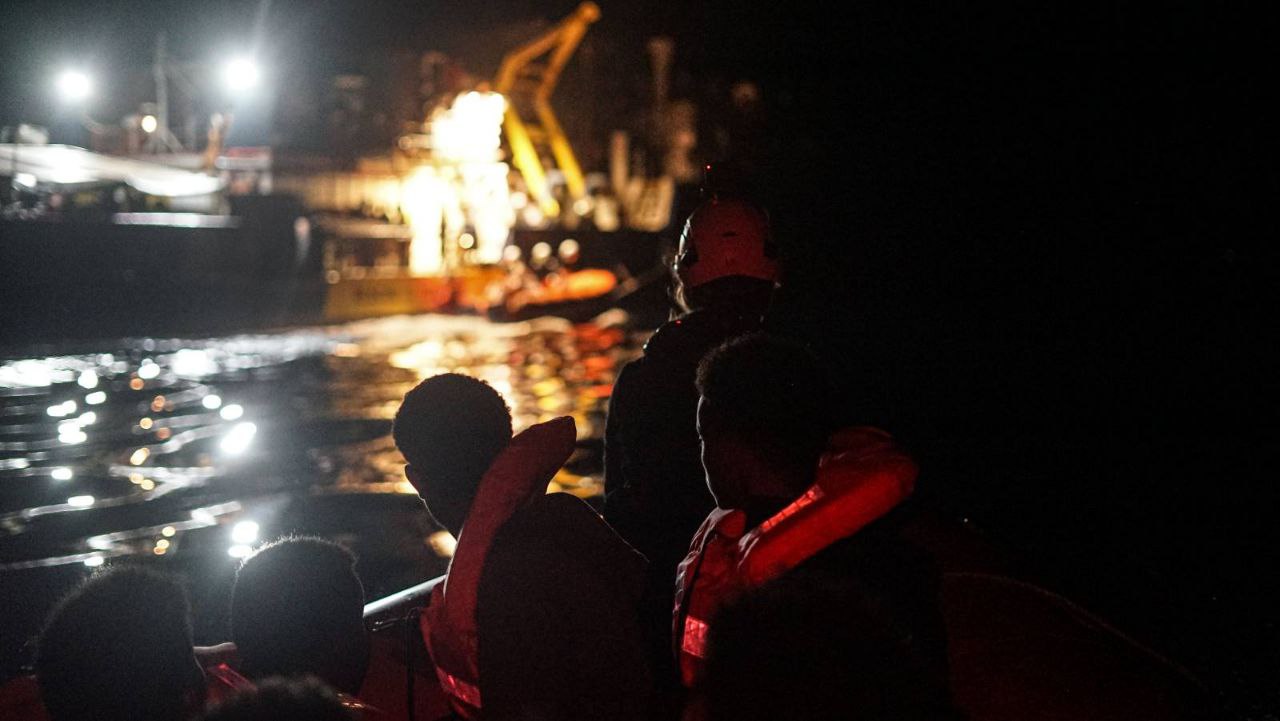
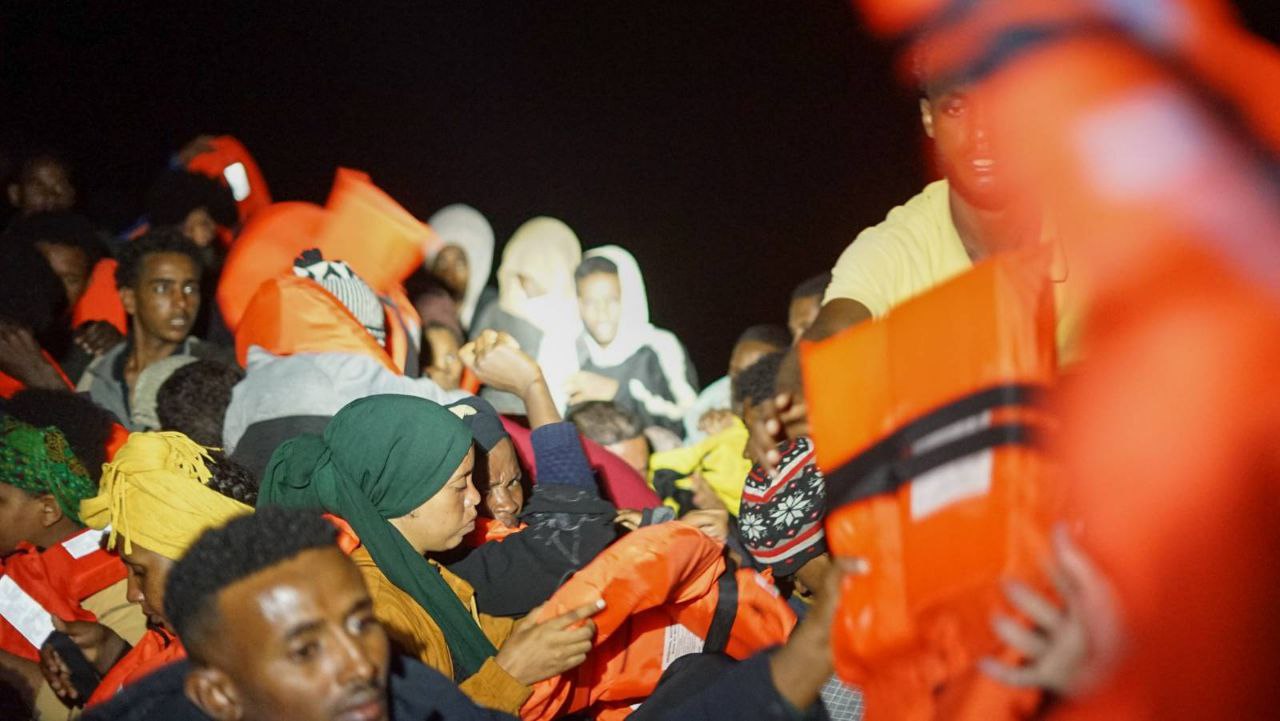
Credit: Sea Watch
After several of our insistences, the Maltese military helicopter left the scene and the Libyan patrol boat reversed course, heading towards the African coast. At this point, around 11.30 p.m., the Rescue Teams of Sea Watch 3 and Mediterranea reached the drifting boat and, with the support of the crew of the Mare Jonio, 85 people, including several women and children, were safely transferred on board the German ship, which was able to resume its course northwards with 307 people on board. While the Mare Jonio continued its monitoring activities in international waters.
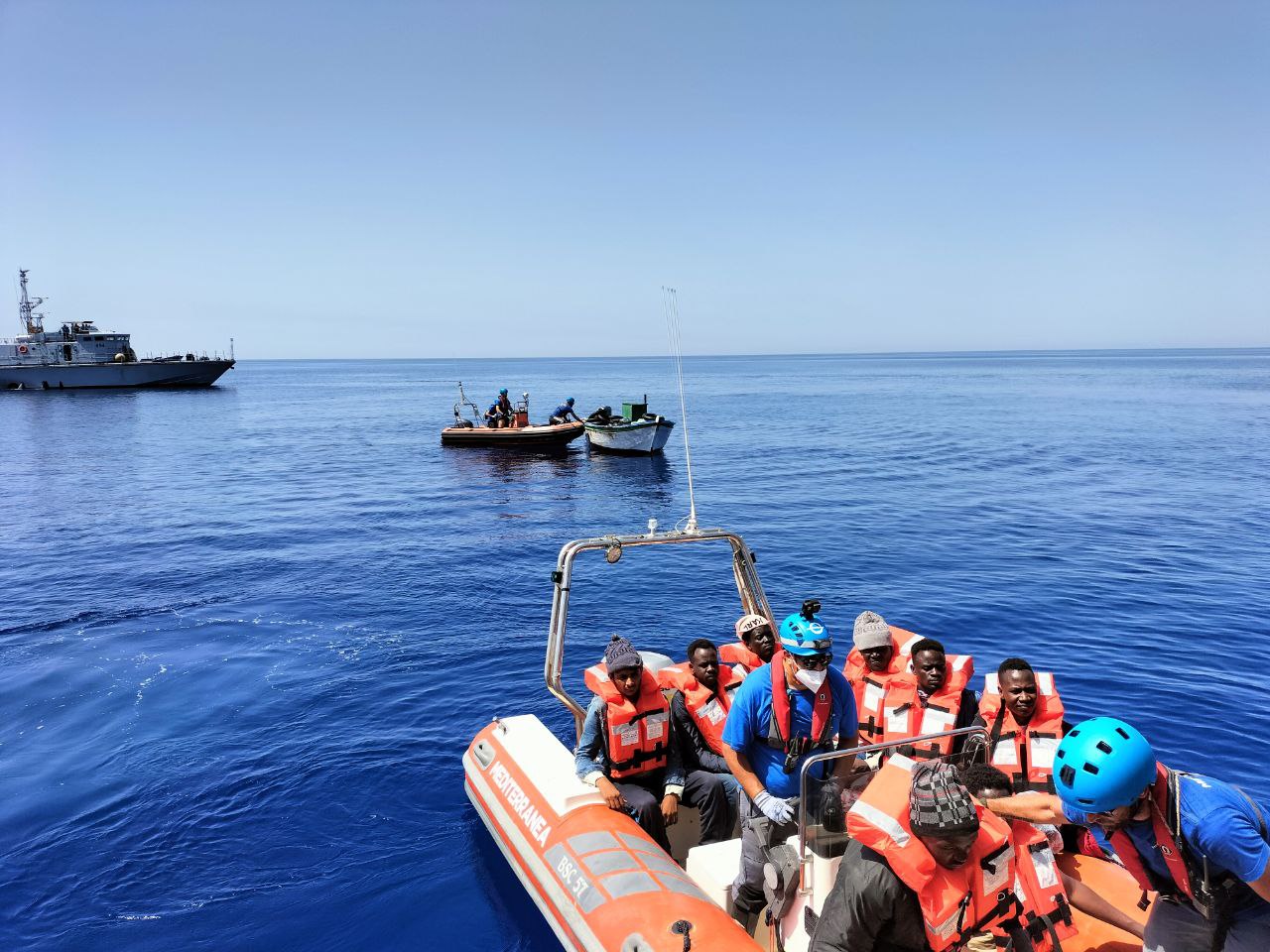
Favourable weather conditions on the morning of Sunday 5 June saw several departures from the Libyan coast with numerous boats in difficulty at sea and an aggressive presence of the patrol boats of the so-called Libyan coast guard. Shortly after witnessing an initial pull-back by Libyan militias, at around 10am in the stretch of sea north of the Bouri oil platforms, at 10.30am the Mare Jonio spotted through her binoculars a second boat in distress, adrift with its engine failing and overcrowded and in danger of capsizing. Our rescue teams immediately approached and distributed life jackets to the people on board. As we were starting to transfer people on board our ship, the scene of the rescue operation was bursting at great speed by the unit 654 "Sabratha" of the so-called Libyan Coast Guard, one of those Bigliani-class patrol boats donated in 2018 by Italy. Over the radio, the Mare Jonio repeatedly asked the patrol boat to move away without interfering with the rescue so as not to jeopardise the safety of the shipwrecked people, who were already in a panic over the terror of being caught and taken back to Libya. No response from the Libyans. And despite this heavy and dangerous interference, all 29 people were rescued on board the Mare Jonio by our Rescue Team.
Subsequently, thanks to the alert sent by Alarm Phone, Mediterranea's ship headed further north towards a third boat in distress that was between the Maltese SAR area and Tunisian waters. Unfortunately, when we arrived on the spot, we only found the smoking carcass of a small plastic boat, an irrefutable sign of an intervention by Libyan patrol boats, which we had seen from our radar particularly busy in the area. In this case, the illegal refoulement operation, even within a search and rescue area of formal European responsibility, was successful: 18 people, including women and children, captured and forcibly returned to the horrors of violence and abuse, torture and rape, from which they were trying to escape.
In the night between Sunday 5 and Monday 6 June, while on board giving initial treatment to the 29 shipwrecked people, the Mare Jonio received a Mayday Relay, a distress call, from the sailing boat Imara of the German humanitarian organisation R42 Sail&Rescue. Since 2 a.m. Imara was in fact close to a wooden boat overloaded with dozens of people adrift and in danger of capsizing at any moment. The German sailing boat was unable to transfer the shipwrecked people on board due to its too limited space, but it had immediately provided assistance to the people in danger, distributing life jackets and supplying them with drinking water. Several requests for intervention sent, by email and satellite telephone, to the Maltese authorities - the boat in distress was in fact in the SAR area of Maltese responsibility - went unheeded: yet another case of inaction and omission on the part of that country.
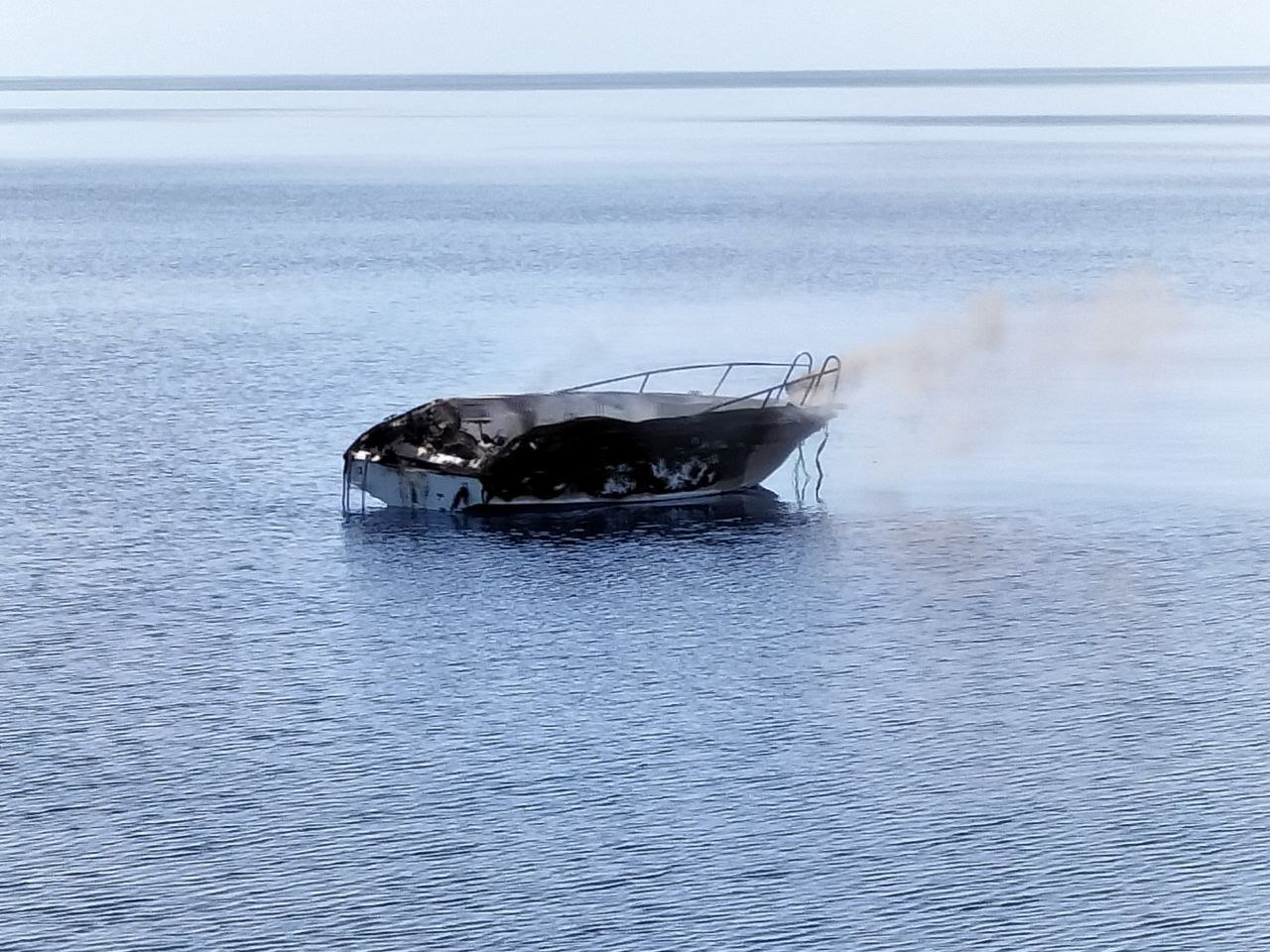
Arriving on the scene around 10.30 am, the Mare Jonio's Rescue Team found a dangerous situation and immediately proceeded to rescue and embark the 63 people in distress, including some 30 young boys, unaccompanied minors, and provide them with the necessary care.
The Mare Jonio then continued its navigation northwards, while reports continued to arrive, particularly from Alarm Phone, of other boats in distress, which were heading towards Lampedusa, between the SAR zone under Maltese and Libyan jurisdiction. During the same hours, aerial reconnaissance activity by the Osprey 1 and Osprey 2 aircraft of the European border control agency Frontex and Malta's military drone, which we had already seen at work on Saturday afternoon, was particularly intense: an activity that did not give rise to any official reports of distress, to be conveyed through the channels provided by international law for all commercial and civilian vessels crossing in the area, but which instead had as its correspondence numerous interventions by Libyan patrol boats, which again pushed 10 to 15 nautical miles north within the Maltese SAR zone. In the evening the Mare Jonio headed at full force for two boats that had contacted Alarm Phone in search of help: we offered the Maltese and Italian authorities our willingness to intervene and actively collaborated with the Italian Coast Guard in their search. A couple of hours later, we received confirmation that the CP308 patrol boat of our Coast Guard, together with a patrol boat of the Guardia di Finanza, departed from Lampedusa, had operated the two rescues and disembarked the people, about twenty on each of the two boats including several women and children, safely on the island.
As there was no longer any case of open distress, on the morning of Tuesday 7 June the Mare Jonio sent the first request to the Maritime Rescue Coordination Centre in Rome (IT MRCC Rome) for the assignment of a safe port of disembarkation (Place of Safety) for the total 92 people rescued and assisted on board our ship.
Continuing to monitor the situation at sea, we meanwhile headed north, while off the coast of Sicily, Sea Watch 3 with 356 people on board had been waiting for a safe port since 6 June. But both their requests and ours received no positive response, thus starting a 'tug-of-war' with the Italian authorities that led us to forcefully demand, at noon on Wednesday 8 June, the allocation of a port without further delay.
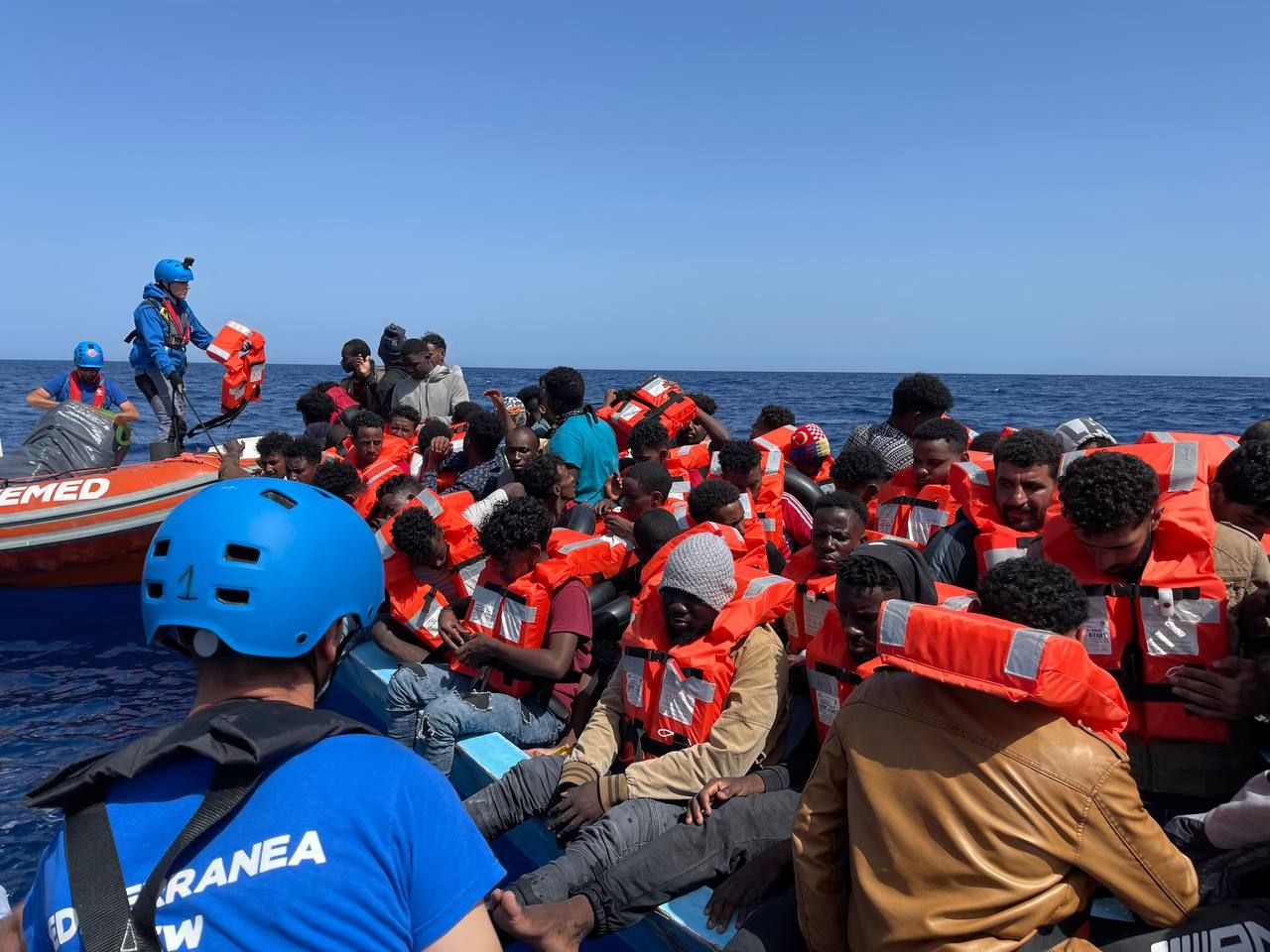
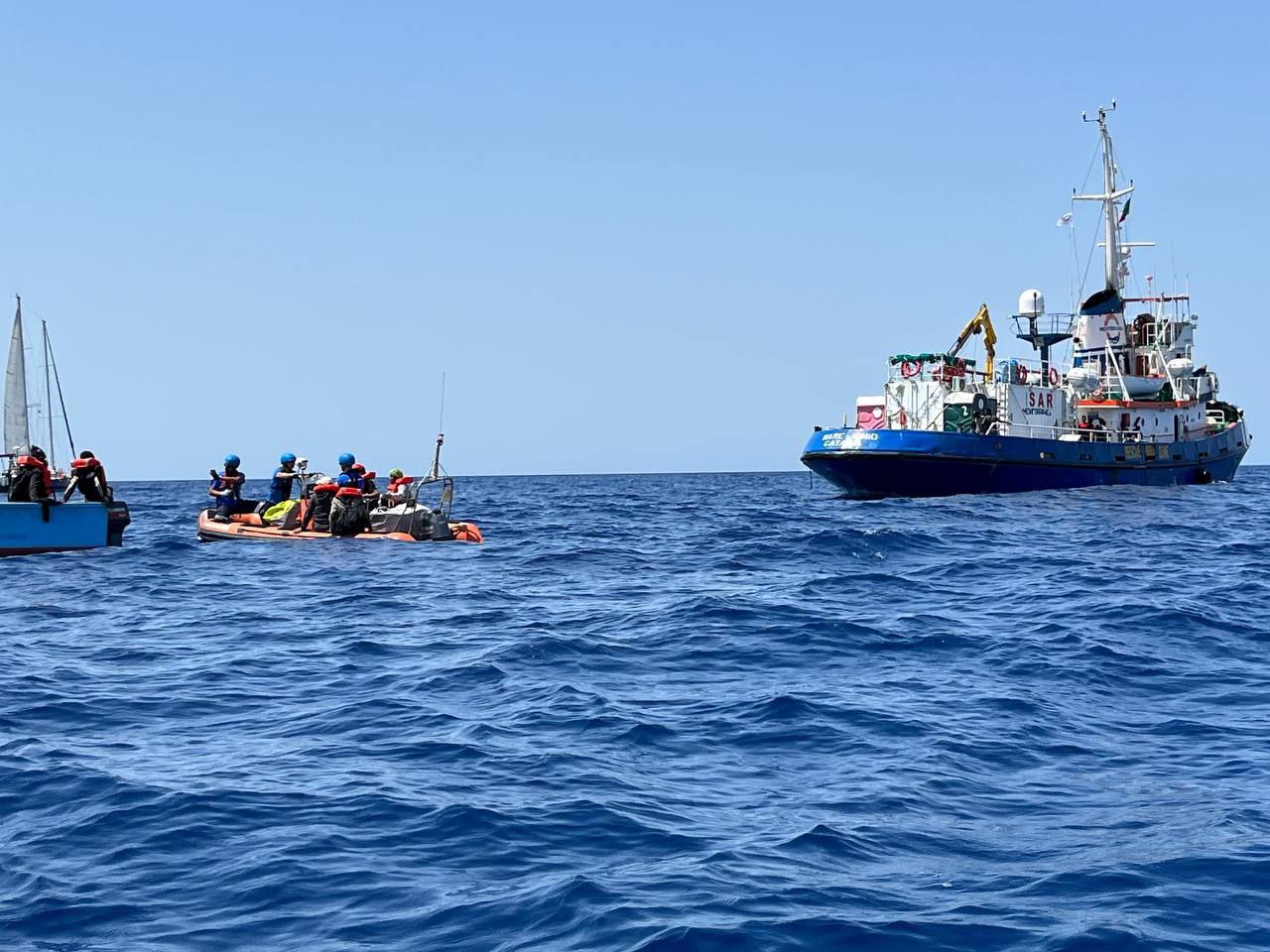
And on Monday 12, with the arrival in Mazara del Vallo after the waste disposal, ship sanitation and refuelling operations carried out in Pozzallo, our Mission 12 came to an end.
We are happy to have snatched 92 more lives from the risk of shipwreck, and certain death, and from the fate of abuse in the detention camps in Libya. This was possible thanks to the solidarity at sea of the Civil Fleet, embodied in this case in the cooperation between Sea Watch, Imara and Alarm Phone with Mediterranea.
On the other hand, we continue to be saddened by the crimes against humanity that, with the complicity and collaboration of European authorities - we have witnessed once again - are being carried out in the Mediterranean Sea with continuous captures and deportations to the hell from which these people are trying to escape. To counter these systematic violations of the Hamburg Convention on the SAR and the Geneva Convention on the Rights of Asylum Seekers and Refugees in practice is one of the most urgent tasks.
Finally, we note how, with a firm stance, it has been possible to obtain what international law provides for, namely the allocation 'as quickly as possible to the nearest safe place of disembarkation', whereas in recent months civilian rescue ships had been forced to wait offshore for up to 12 days. This must be matched by an adequate and dignified reception and care system for people ashore. Mediterranea will never stop fighting, with everyone's support, for these goals.
